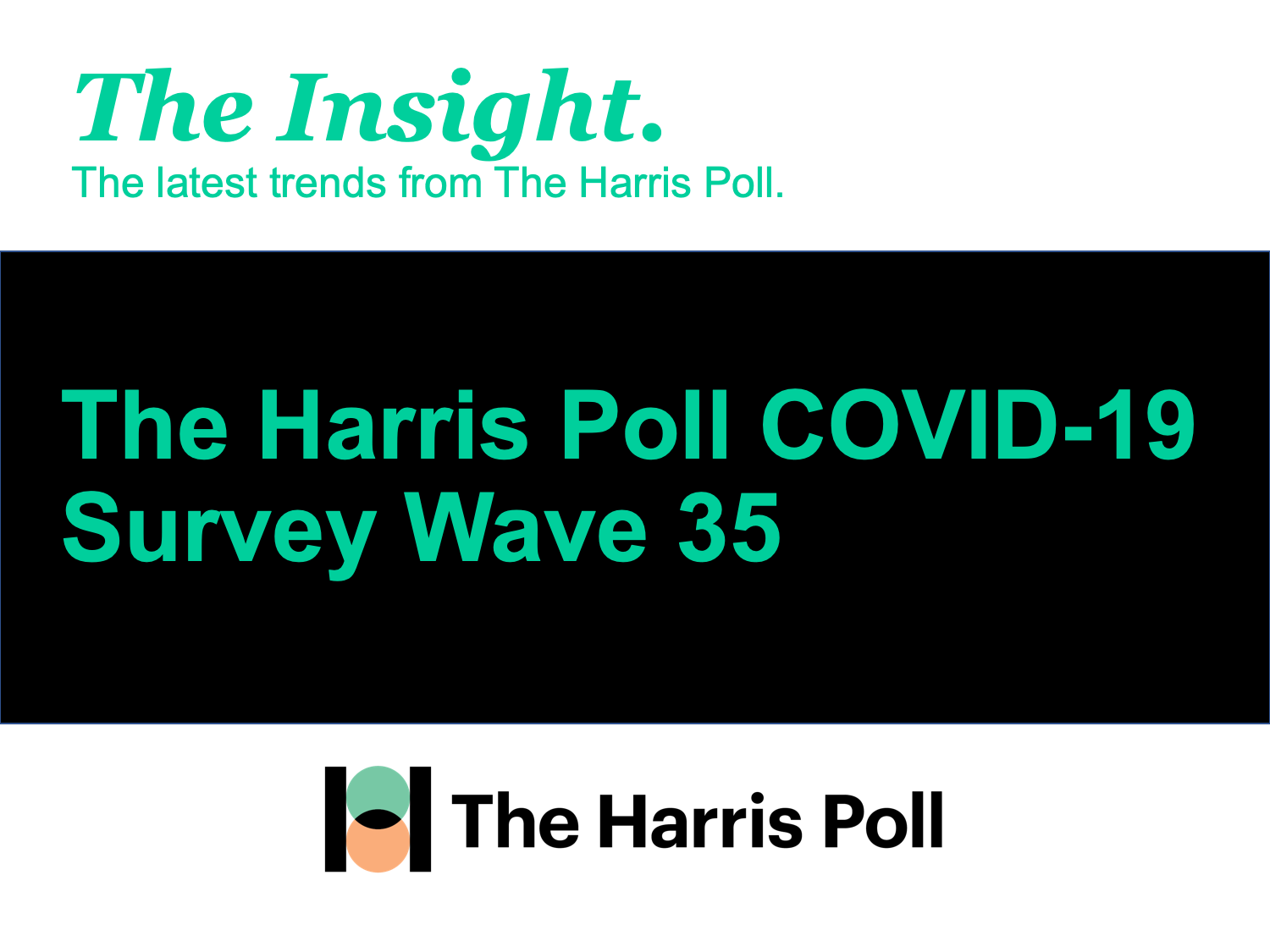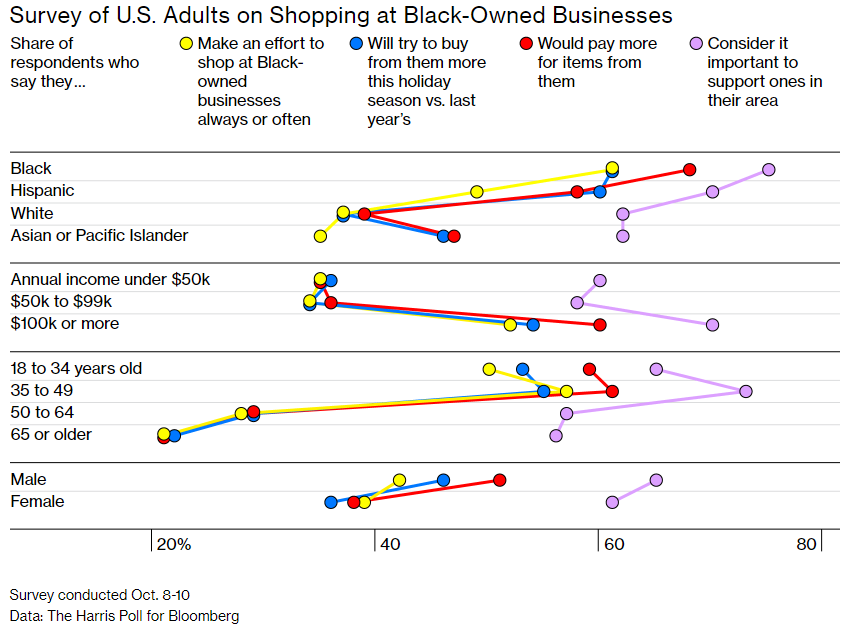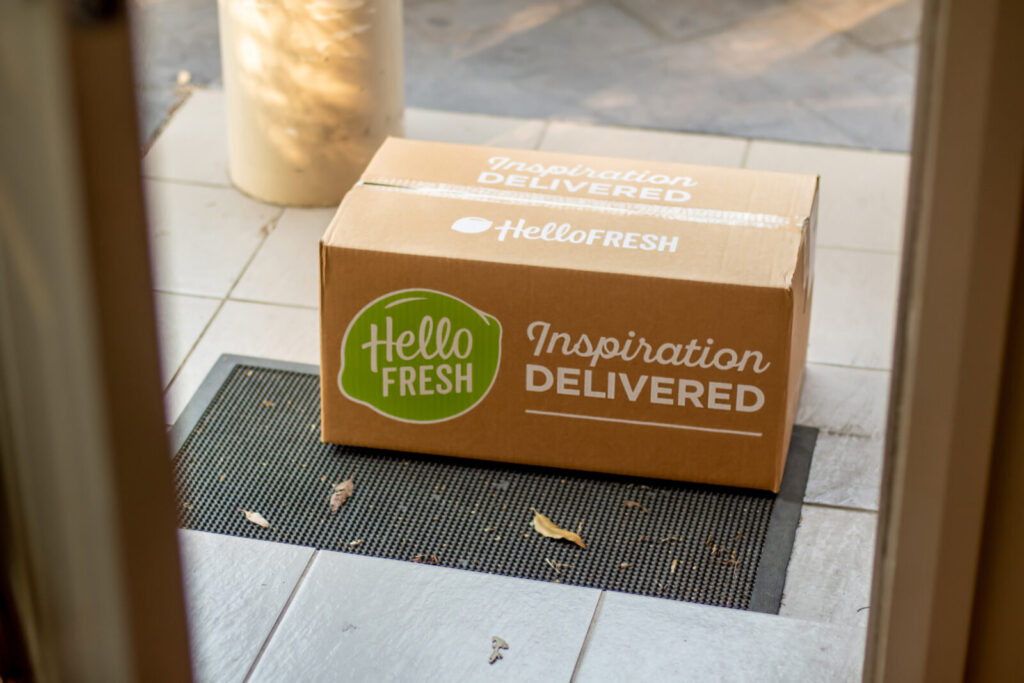Brief • 4 min Read

In The Harris Poll COVID-19 Tracker (Week 35) fielded October 22nd – 24th, 2020, we explore if the boon to Black-owned businesses is here to stay, the grim outlook into winter as COVID cases surge, vaccine skepticism, record-setting turnout in a historic election, and how Americans plan to watch the results on Election Night.
As a public service, our team has curated key insights to help leaders navigate COVID-19. Full survey results, tables, and weekly summaries can be accessed for free at The Harris Poll COVID-19 Portal. We will continue to actively field on a regular cadence to track the shifts in sentiment and behaviors as the news and guidelines evolve.
Black-Owned Businesses Hope the Summer Boom Doesn’t Fade
#BuyBlack trended on social media this summer as consumers, encouraged by the Black Lives Matter movement, spent their dollars at black-owned businesses. In our poll conducted with Bloomberg News, we looked to see whether BLM-inspired enthusiasm will spur a permanent change in shopping habits:
- A majority (63%) of Americans say it’s important to support Black-owned businesses, and today search engines and apps such as Yelp and OpenTable are making it easier to do so by highlighting Black businesses on their platforms.
- Four in 10 (40%) of Americans say they are making more of a conscious effort to shop at Black-owned businesses compared to last year, including (61%) of Black Americans, (49%) of Hispanics, and (37%) of White Americans.

- In fact data from our weekly shows that since May, those who say racial equality is important to them personally have increased significantly, moving to nearly 9 in 10 (88%) today up from (77%) on May 22.
- What’s more is that (77%) say the racial equality movement “feels different” this time, and (43%) say it feels different because “There is more support from different groups of people than before,” a sentiment felt even stronger among black Americans (53%). Another (36%) of gen pop and (42%) of Black Americans say it feels different because “People outside the black community are finally trying to listen and understand the plight of POC”
- Interestingly, (72%) say they trust companies more than the federal government to find solutions to racial equality.
Takeaway: Black small-business owners have gone from no revenue during lockdown to unsustainable demand over the summer and the holiday season will test long-term consumer support.
Americans Say the Worst of COVID Still Ahead
Over the past week, there has been an average of 71,092 cases per day, an increase of 40 percent from the average two weeks earlier, as reported by the New York Times. We checked in with Americans this weekend to get their outlook and mindset on the pandemic:
- COVID is not done with America: More than half (54%) of Americans do not believe the worst of the virus is behind us in fact, two-thirds (66%) of Americans say the worst of COVID-19 is still ahead of us. Just over half (52%) say the COVID-19 pandemic is worse than they had expected it to be.
- Fear is rising: Nearly 4 in 5 (79%) of Americans are concerned about the rise in cases of COVID-19 and more than 4 in 5 (82%) are concerned that deaths will rise past 250,000.
- Dreading a repeat of tragedies among the frontlines: Today, (75%) of Americans fear a shortage of healthcare workers, and they have reason to; right now, the states seeing dangerous levels of hospitalizations are also where healthcare workers are scarce, notably rural parts of the Mountain West and the Midwest, as reported by Kaiser Health News. As we know too well, front line healthcare workers must risk their own health to treat others, signaling worker shortages if they too become infected.
- Hospitals face a familiar problem without a solution: As hospitalizations rise so does the risk of hospital bed shortages, which (70%) of Americans now fear. Take for instance the situation in Utah where the situation has become so dire that the Hospital Association warned that hospitals are expecting to begin rationing care within a week or two…
- Preparing for another lockdown: Right now (69%) are staying home as much as possible and as the majority (80%) are concerned about case resurgence on college campuses, (78%) agree with putting college and university campuses under shelter in place orders if there is an increase in cases of COVID-19 on campus.
Takeaway: The country is facing a recurring nightmare unless action is taken to slow the spread, but faith is dwindling; in fact, nearly a third (31%) go as far as to say that COVID-19 will never be over. For those in need of positivity, check out Just Give Me Positive News which compiles stories on the pandemic each day which highlights the progress that is being made.
Vaccine Skepticism Has Already Arrived
A STAT-Harris Poll earlier this month and cited in the New York Times found that nearly three-fifths (58%) of Americans say they will not get vaccinated right away, a decline from (69%) who said the same in August. Why are Americans so skeptical – and who do they trust when it comes to a vaccine?
- Government officials will need to earn the trust of more vulnerable and skeptical communities: The STAT-Harris Poll found the decline was twice as steep among Black Americans: only 4 in 10 (43%) said they would get the vaccine right away, down from (65%) in August. The New York Times explains why this skepticism exists among Black Americans: during a Food and Drug Administration meeting last week in which experts asked Americans their views on a potential vaccine, they note “others said their skepticism had historical roots dating to the Tuskegee Syphilis Study, in which government scientists lied to Black men and allowed them to go untreated for syphilis.”
- However, trust in the FDA remains high: three-fourths (75%) of Americans say they are confident that the FDA will only approve a COVID-19 vaccine if it is safe, including two-thirds (67%) of Black Americans.
- Who do Americans trust in the vaccine? A STAT-Harris Poll found (83%) of Americans trust doctors and nurses to provide accurate information on the development of a COVID-19 vaccine, while (81%) trust nationally recognized hospitals like the Mayo Clinic and Cleveland Clinic, (80%) trust scientists, and (79%) trust their local hospital.
- The Economist looks at why anti-vaccination sentiments are more prevalent in rich countries than in poor ones.
Takeaway: The U.S. government and scientific community will need to listen to and address any skepticism of a vaccine through transparency and testing if they are to win over these Americans and achieve herd immunity through a vaccine. If this skepticism is left unaddressed, then the development and approval phase of the vaccine may look easy compared to the administering phase.
The Turnout Election
In May of this year, we asked Americans what impact the COVID-19 pandemic would have on the November presidential election and found 4 in 10 (40%) said it would lead to a decrease in voter turnout given safety concerns with voting in-person. As it turns out, the opposite is happening: as states expanded early and mail-in voting to avoid crowded polling places on Election Day, America is on track to have the highest turnout rate since 1908.
- Financial Times puts the surge into perspective: “With a week to go until election day, the number of early votes in some states is on track to surpass the entire number of ballots cast four years ago.”
- Support is high for vote-by-mail is high – as well as for it to continue post-pandemic: In our polling, two-thirds (67%) of Americans approve of vote-by-mail for this year’s presidential election. And more than half (52%) of Americans support continuing to have the option to use vote-by-mail in future elections after the pandemic.
- But like most of our politics today, there is a partisan – and generation – divide: 7 in 10 (71%) Democrats support the continuation of vote-by-mail in future elections while only 4 in 10 (41%) of Republicans do. And nearly three-fifths (57%) of Seniors support its continuation vs less than half (45%) of Gen Z/Millennials.
- However, Americans still prefer the in-person experience: (56%) say they would prefer to vote in-person in future, post-COVID elections, with (69%) of Republicans preferring in-person vs (48%) of Democrats.
- And the record high turnout isn’t just because of mail-in voting: USA Today points out that “Texas is breaking records despite not being among the states that expanded vote-by-mail amid the pandemic.”
Takeaway: Historic turnout was likely always staring us in the face given the combination of a historic pandemic upending American life and a pivotal presidential election, leading many Americans to become more aware of and engaged in politics than ever before. But the expansion of early and mail-in voting also proves that when voting becomes easier, more Americans will vote.
The Super Bowl of Politics
It’s hard to believe, but we are less than one week away from Election Day. Despite three-fifths of Americans (57%) saying they anticipate the winner being announced later than usual due to mail-in ballots, nearly half (46%) say they will tune in on Election Night to see the results. We asked Americans how they’ll be tuning in and what their night will entail.
- Television’s big night: Nearly half (46%) of Americans plan to see the results of the 2020 presidential election on Election Night, November 3rd, while under one-quarter (23%) say they will see the results the next day. And among those who will be tuning in, (73%) will be watching the results live on TV and/or catching the recap on TV. More than one-quarter (28%) will be on social media to see the results and (22%) will be checking online news sources.
- As the New York Post puts it: pull the lever and take a shot. Not all Americans will be sober for the results, with half (49%) of Americans saying they plan to consume either alcohol or cannabis that night, including (62%) of Millennials. What is the intoxicant of choice? One-quarter (26%) will be drinking beer, (23%) will watch with a bottle of wine, (15%) will be reaching for the liquor, and (13%) will “go green” – consuming cannabis in some form. What else will be on the table? Nearly half (46%) will be having snack foods like pretzels and popcorn, while (42%) will be having pizza and (28%) dessert.
- Alcohol and comfort food will help Americans cope on Election Night because of the stress that comes with it: nearly half (48%) of Americans say they are more stressed about the upcoming election compared to prior years, while one-third (35%) say they are having the same level of stress. One-quarter (24%) say their level of stress and anxiety about the election is high, while 4 in 10 (41%) say it is moderate.
- Big election night parties may be on hold this year with COVID-19, but Americans won’t be watching alone: 8 in 10 (81%) of those who plan to watch say they will be with someone else, with (47%) saying their spouse or partner, (22%) their children, (18%) their friends, and (17%) their parents.
- Which state will Americans be watching closely on Election Night? Though FiveThirtyEight currently has Pennsylvania as the “tipping point”, (42%) of Americans say Florida is the most important state in determining the winner. More than one-quarter (27%) say Pennsylvania and the possible new swing-state of Texas.
Takeaway: Unless you plan to be at Trump International Hotel in DC, Election Night watch parties will likely look different this year. But as with many other social events of 2020, Americans will adapt and possibly start new traditions that they’ll pick up in 2024.
Subscribe for more Insights
Subscribe to our newsletter for the latest trends in business, politics, culture, and more.
Download the Data
This survey was conducted online within the U.S. by The Harris Poll from October 22 to 24, 2020 among a nationally representative sample of 2,050 US. adults.
Download
Subscribe for more Insights
Subscribe to our newsletter for the latest trends in business, politics, culture, and more.
Download the Data
This survey was conducted online within the U.S. by The Harris Poll from October 22 to 24, 2020 among a nationally representative sample of 2,050 US. adults.
DownloadRelated Content








